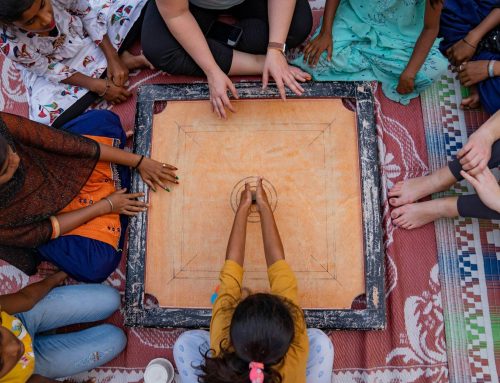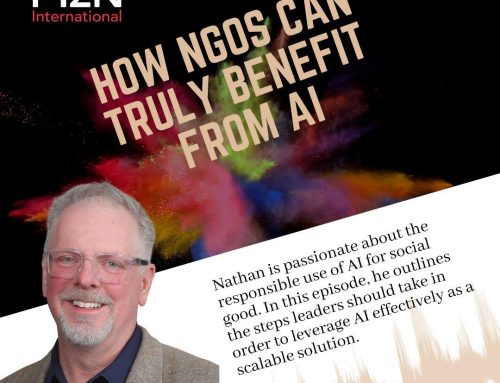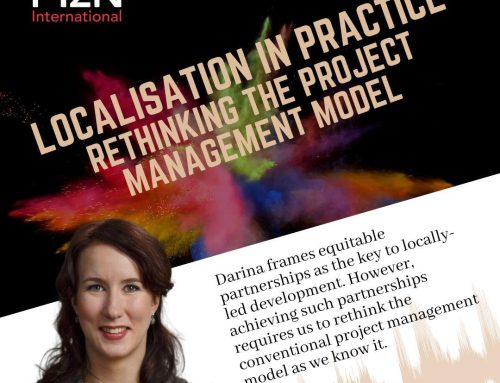Advocating for Donors to alleviate the funding shortfall faced by NGOs
Part 1 of 2 Part Cost Recovery Series
Written by Joseph Nelson, MzN consultant and specialist in financial change management.

A large part of our work supports NGOs to recover funds from donors. These funds are important as they form part of a sustainable source of income, helping to manage the NGO and maximise resources. This, ultimately, funds constant improvement and thereby impact.
Oftentimes, however, our partner NGOs have not been able to cover these costs consistently, and we therefore have to embark on a complete organisational restructuring to be able to do so in future.
The volume in which our clients seek our assistance in cost recovery matters is on the rise, which led us to ask ourselves:
“ Is it time that Donors step up?”
The perception of our partner NGOs, with which we often agree, is that donors have unrealistic expectations of what it costs to run a truly effective NGO. Large institutions pay rates far below their own relative operating costs, and NGOs compound the problem by hiding the true operational costs to conform with donor requirements. The funding race to the bottom leads to underinvestment in the sector. This stifles learning, and thereby, impact.
For example, our experience shows that systems for project management and M&E in NGOs are sometimes decades behind their private sector counterparts. Underfunding also leads to overwork and long hours for NGO staff, increasing staff turnover. Coming from a financial sector background, I thought I was used to long hours until I started working with NGOs. This is not to mention the countless hours we and our partners spend trying to carve out ways to directly charge roles to donors or to justify why such roles are critical.
“It is our assertion that underfunding from donors systematically hampers the effectiveness and impact of NGOs.”
At MzN, we see the average core operational costs of an NGO at approximately 20%, yet we see an average core cost funding, through both indirect cost recovery mechanisms and direct charging, at 16%. This means that on average, NGOs have a funding shortfall of 4% in terms of their core costs. Now, this is not a scientific fact, but it is indicative of the problems we are seeing for our NGO partners. This makes it impossible for NGOs without large fundraising teams to build up reserves. The question is; in a world where we need more, not less, organisations that help address all kinds of societal, justice and ecological challenges: Do we really want to hollow these out?
MzN works extensively with NGO partners to get their funding mix right. We work to balance grant funding portfolios with other funding sources to bridge the difference between actual costs and those funded by grants. Balancing acts include:
- Developing earned income streams
- Cultivating or growing individual gifts including major giving
- Taking on commercial contracts
- Working with foundations and large family offices
- Bringing in investors
- Shifting towards donors that are more realistic about covering costs
Collectively, a mix of these options can work to balance an NGO’s book, ensuring that costs are covered, the organisation remains sustainable, and even having money available to invest a bit. However, the act of achieving this right blend of funding sources becomes a costly and laborious task. This takes away time and attention from what matters; impact and providing aid.
The dilemma we are constantly presented with by our clients led us to ask the question, is it time for donors to step up? Donors talk about building capacities across the sector, about empowering professional organizations to deliver quality services to those in need, and about localisation.
But how are NGOs expected to develop, improve, and serve more people if they are constantly starved of the core funding they need to run an effective organisation?
It is time to start a movement, to push back and ask for more from the donors that we work with. The question is, how do we get that message to them?
And let’s not forget that it’s not just about the donors either. NGOs have a lot of ways to balance the books too. More on that later!
Part 2 of this series coming soon.
If you want to learn further about what you can do to improve your recovery costs, take a look at our guide ‘how to fund your organisation, not your projects’
Want to know more? Reach out to our team of experts at www.mzninternational.com.




